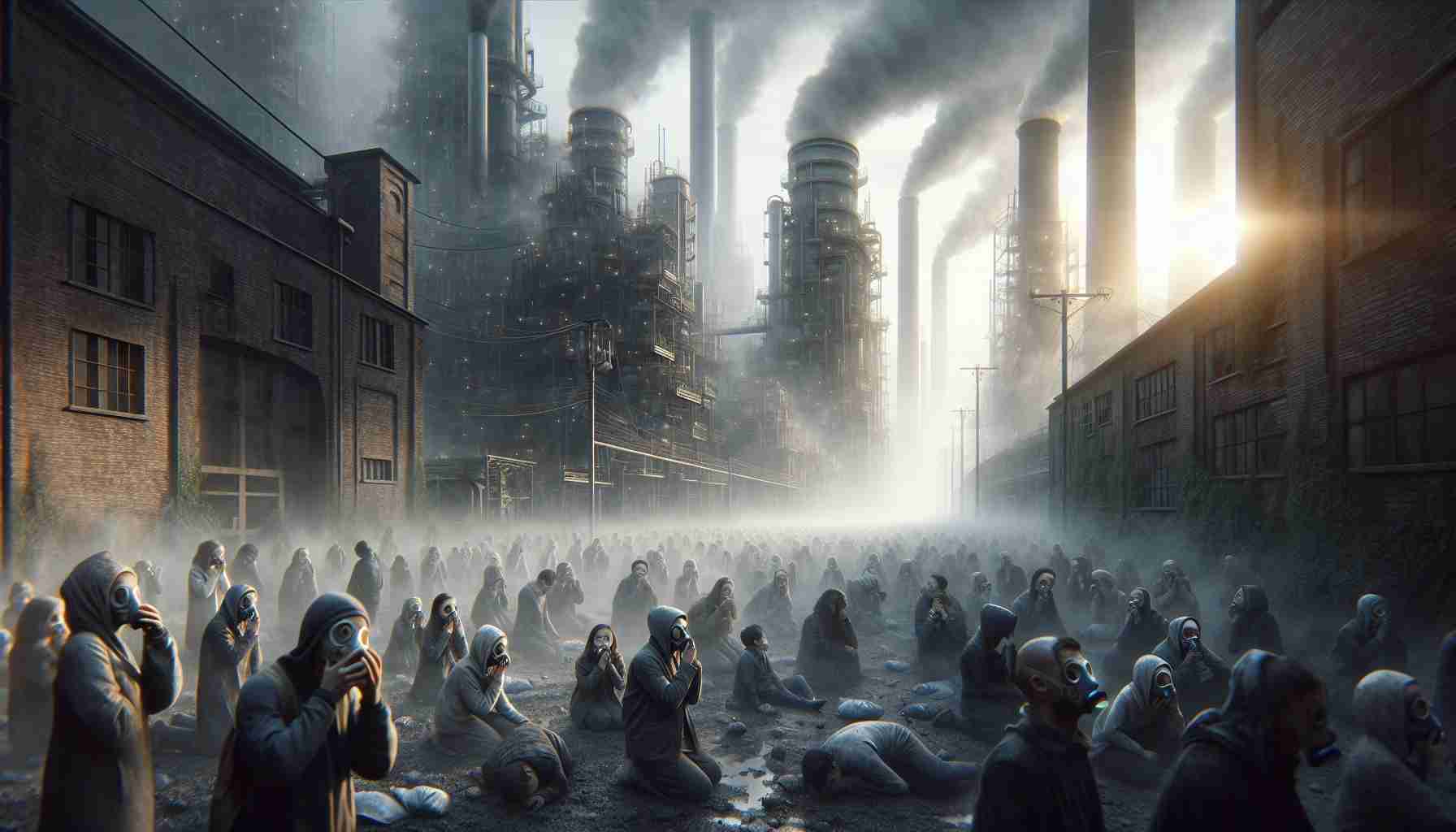In a world where even the air we breathe is becoming a commodity, one might question the foresight of satirical playwright Ben Elton. His 1990 debut play, Gasping, shattered the complacency of the Thatcher era by spotlighting corporate greed and environmental degradation.
The plot revolves around a marketing executive who, in his quest for innovation, helps develop “Perrier for the nostrils,” a bizarre concept involving bottled oxygen. For audiences in the ’90s, this absurdity served as a warning about the darker side of capitalism. Fast forward to today, and this satire feels alarmingly prophetic.
Contemporary urban life reflects a stark truth: clean air is increasingly a privilege. While wealthier communities benefit from improved air quality, disadvantaged neighborhoods suffer from pollution. The rise of air purifiers and oxygen bars highlights a growing disparity, positioning fresh air as a status symbol.
Elton’s critique extends to governmental excesses, where essential resources are commodified. In a time when every aspect of life is taxed, pondering an “air utilization levy” doesn’t seem far-fetched. The irony is palpable for Elton, once a vocal critic of the establishment, now witnessing the Labour Party embrace such revenue-generating tactics.
Ultimately, Gasping stands as both a mirror to our reality and a cautionary tale. As we confront climate change and resource scarcities, Elton’s insights compel us to consider the cost of modern living. Are we prepared to laugh at the absurdity of our situation, or will we continue to gasp for breath in this brave new world?
Air: The New Commodity in Urban Life — Ben Elton’s Gasping and Its Prophetic Message
As environmental concerns mount and the effects of climate change become increasingly evident, the themes presented in Ben Elton’s 1990 play Gasping resonate with an urgency that transcends time. The satirical narrative not only critiques corporate greed but also acts as a forewarning of a future where air itself might be commodified.
The Growing Demand for Clean Air
In recent years, the demand for clean air has surged, leading to the proliferation of air purifiers, oxygen bars, and bottled air products. This trend is indicative of a wider societal shift wherein air quality is no longer a given but a privilege of the affluent. The ability to access clean air varies significantly based on socioeconomic status, with disadvantaged communities often buried in pollution from industrial activities, transportation, and inadequate urban planning.
Features of Modern Air Quality Solutions
Today’s market offers a variety of air quality solutions aimed at restoring what many are now calling a basic human right:
– Air Purifiers: Devices that filter out particulates, allergens, and pollutants, becoming a staple in homes and offices.
– Oxygen Bars: Establishments where patrons can breathe in flavored oxygen, symbolizing a luxury commodity rather than a natural resource.
– Smart Air Quality Sensors: Emerging technologies that allow individuals to monitor air quality in real-time and make informed decisions about their environment.
Pros and Cons of Purchasing Air Quality Solutions
Pros:
– Improved respiratory health and overall wellness.
– Enhanced quality of life, especially for sensitive groups such as children and the elderly.
– Increased awareness about air pollution and its health impacts.
Cons:
– High costs associated with advanced air purification systems.
– Dependency on technology for what should be a basic element of survival.
– Potential false sense of security regarding air quality.
Market Analysis and Trends
The air purification market is booming, with industries predicting a significant CAGR (Compound Annual Growth Rate) as urbanization increases and environmental policies become more stringent. Innovations like HEPA filters, activated carbon filters, and even ionizers are expected to drive consumer choices toward more environmentally-friendly and efficient products.
Sustainability and Environmental Impact
As urban areas become densely populated, the sustainability of air quality improvement measures must be taken into account. Many companies are now focusing on developing energy-efficient air purifiers that minimize their carbon footprint. Furthermore, urban forestry and green spaces are being promoted as natural ways to improve air quality while also enhancing urban environments.
The Future of Clean Air Access
Looking ahead, the concept of an “air utilization levy” mentioned in Gasping could become a reality, reflecting a world where natural resources are taxed to combat climate issues and fund governmental initiatives. This raises pressing questions about equity and access: How will policymakers ensure that all citizens can enjoy clean air, regardless of their financial standing?
As we delve deeper into the implications of air becoming a commodity, Ben Elton’s Gasping serves as more than just a piece of theater; it is a call to action. The real question remains: Are we prepared to address these absurdities head-on, or will we continue to gasp for breath as we navigate the complexities of modern living?
For more insights on environmental issues and innovative solutions, visit Environmental Science.
